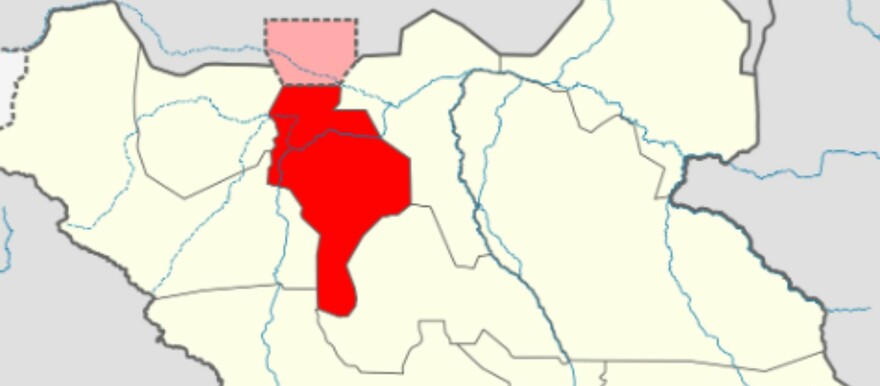The Ad Hoc Committee of the Council of States formed to investigate the root causes of the fighting between the Ngok Dinka of Abyei and Twic Dinka of Warrap last week recommended the deployment of forces under the command of a neutral officer to the disputed areas of Agok and Anet.
In its report presented to the Council on Thursday in Juba, the committee said the forces that were deployed to check the violence are believed to have taken sides in the conflict that broke out last October over boundary issues between the two communities.
The committee headed by Agelo Beda and comprising six members of the Council of States, recommended that for peace to reign, the commander of the forces to be deployed should not hail from the greater Bahr El Gazhal region.
“The committee recommends that a force with a neutral commander who does not hail from the greater Bahr El Gazhal region be deployed in the areas adjacent to Agok and Anet as a buffer zone,” said Riaw Gatlier Gai, a member of the Ad Hoc Committee who read the report. “Tiger Battalion must vacate the public facilities in Agok and be deployed to the hot spot areas marked by the two communities Ngok and Twic communities outside the box, especially areas such as Jokthiang-Makeer, Thon, Akuur-Makeer-Awet and Majakol outside the box.”
“The committee recommends that a South Sudan Boundary Committee be formed by President Salva Kiir Mayardit to Identify and demarcate the boundary between the Twic and Ngok communities by the July 1955 and 1 January 1956 Sudan survey maps,” the report added.
The 16-page report outlined 21 recommendations which include the formation of a boundary commission, deployment of military force with a neutral commander in the affected areas, and holding accountable local politicians who fueled the conflict.
According to Gai, the committee also recommended the release or prosecution of government officials from Warrap State and Abyei Special Administrative Area who were arrested about the conflict.
Other recommendations include the need to conduct dialogue and sensitization among the communities along the 1 January 1956 boundary about the ruling of the International Court of Arbitration regarding Abyei’s boundary and the mandate of the UNISFA.
Aluel Tabitha, a member of the Council of States representing Abyei, commended the committee for its work, saying it was conclusive.
“My thanks go to the Committee for the report. It is very inclusive and also comprehensive and covered everything,” she said. “In 2011, with the support from the president of South Sudan, the people of Abyei held a referendum and voted 99.9 percent to join South Sudan although the referendum has not been effective.”
Aluel urged the upper house of the TNLA to adopt the report and make sure the recommendations are implemented.
For his part, James Magok, who represents Lakes State and was a member of the committee that investigated the conflict between the Melut and Maban communities in Upper Nile state, blamed parliament for effecting recommendations by successive committees.
“When we point fingers at the conflicting communities on the issues of borders, we should also point fingers at ourselves. I happen to be one of the members in a committee that was sent to Upper Nile when there was a conflict between the people of Malut and Maban,” he charged. “When we went and investigated the chiefs, women, and youth, we had with us all the traditional maps. Then we came and compiled the report and we had recommendations and I think none of those recommendations were implemented.”
“I would like to say that this time around the Council should have a very strong resolution to support the recommendations,” Magok added.
Meanwhile, Aldo Ajuo who represents Awiel, said the formation of a boundary commission will solve territorial disputes in the country.




